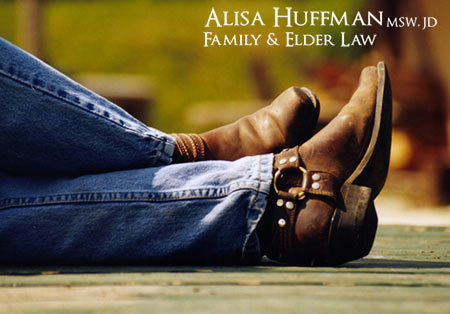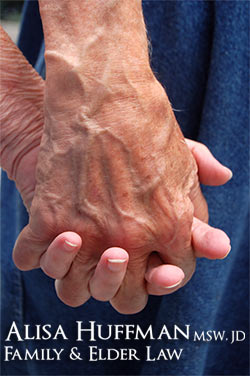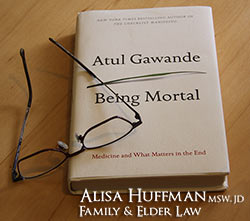|
Tuesday, March 28 2017
I love it when I learn new words or concepts that ring true for me the first time I hear them. That's what happened the first time I heard the word, deprescribing. We all know what it means for a doctor to "prescribe" medication. Deprescribing is the opposite of that. It means that a doctor is working with her patient to evaluate all prescribed, and over-the-counter medications, to determine whether any of them can be "deprescribed" or "discontinued" in a therapeutic manner. According to some authorities, it is important for older members of the family to periodically evaluate all of their medications with their doctor to determine whether there are some that need to be deprescribed.
I also love it when my profession overlaps with a family member's profession. It makes for very interesting conversations and learning experiences at family reunions. I have been spending time with my niece who is a pharmacist. It is fascinating to learn more about the important contribution pharmacists make in our community. Now, when I meet with clients and their families, I often encourage them to reach out to their pharmacist to ask questions and get clarification about the medications they are taking. Oftentimes, these critical conversations can lead to better management for ones’ wellbeing and inspire future discussion with one's family physician.
Tuesday, August 23 2016
I used to think the saying Time flies—and it speeds up as you get older! was just something older people liked to say. They always seemed to pull it out as a way to advise younger people to make the most of their time. And now that I am older, I understand the truthfulness of this saying in my own life and in the lives of my clients.
Since my last blog entry in January, I have experienced the untimely death of my beloved sister-in-law who was only 56 years old. Then a few months later, I had a serious biking accident that could have very easily led to my own death or serious disability. I flipped my bike, landed face down on the edge of the sidewalk, bounced, and flew through the air to come to rest down an embankment covered in soft patch of springtime poison ivy. Within seconds of confirming that my teeth were still attached and I was not disabled and still alive, I felt gratitude. I believed in that moment that not only had I been blessed by avoiding a head-on collision with oncoming traffic on one side and a light pole on the other, but that I would recover from my injuries and my life would never be the same.
I’ve already written about the practice of elder law and how my work with others requires conversations about death, disability, and loss. I’ve often referred to these conversations as sacred conversations. My experiences this year have reinforced the sacredness of these conversations in my own life and my commitment to my clients and their families. But there is only so much time and a limit to the number of clients that I can see. So, together with my office manager, Sandy, we have decided to experiment with facilitating a public gathering to see whether these conversations on a larger scale can be beneficial to those who attend. We are calling it Shaping Your Future: Decisions Only You Can Make. I am inviting others to meet with me from 4:00 - 5:30 PM on the third Tuesday of the month at The Mayton Inn, located in downtown Cary. The topics include:
- Wills & Trusts
- Aging in Place
- Probate & Bereavement
- Palliative Care & Hospice
- Advance Directives
|
- Powers of Attorney
- Community Living
- Being Mortal
- Quality of Life
|
 |
Each month’s topic will be posted here on my website. At this time, we are asking for a $5.00 donation for the space and encouraging those who attend to plan to have dinner or a drink at The Mayton Inn’s restaurant and bar, Verandah. Please RSVP here.
We look forward to seeing you:
- September 20th: What’s the Big Deal About Wills & Trusts?
- October 18th: Straight Talk about Long-Term Care Options
|
Saturday, January 09 2016
I'm older than some of my elder law colleagues, having lived a full life, experiencing marriage, divorce, births, and injuries and deaths of friends, family, and collegagues. I'm fortunate to have an office manager, Sandy, who also has lived a full life, experiencing tough situations that enable her to understand the importance of our work with others. As members of the sandwich generation, we both have cared for children and godchildren, parents and grandparents. So, we've seen alot and we know the importance of understanding each family's unique situation.
Friday, September 11 2015
I've loved country music since I was a kid. It’s a delightful pleasure when a song comes on the radio that warms my heart and motivates me to sing along. The other day as I was listening to Tim McGraw’s song, “Live Like You Are Dying,” I got inspired to write this blog that has been whirling around in my head for awhile now.
Tim McGraw’s song is a story about an encounter with someone in their early 40’s who has been looking at x-rays, talking ‘bout the options and talking ‘bout sweet time. When the song writer reflects that this might really be the real end, he asks his new friend something like, what do YOU DO when you get this kind of news?
|
That’s when the chorus, a joyful paradox, makes me sing even louder, “I went sky diving. I went rocky mountain climbing. I went 2.7 seconds on a bull name Fumanchu. And I loved deeper. And I spoke sweeter. And I gave forgiveness I’ve been denying. And he said someday, I hope you get the chance to live like you are dying.”
I've had the privilege of getting to know many people who live life in the freedom and joyful celebration of life that Tim's song so artfully describes. And for the most part, these folks have developed a healthy appreciation of their own mortality. My theory is that this perspective about living life to the fullest is most pronounced in people who accept the certainty of death. It is for this reason that I love working with clients who are living their life in the full awareness that they are dying.
|
 |
Practicing elder law like a social worker gives me a heightened appreciation for the importance of delving into a client’s life story. I never accept representation of a client until we have had a two-hour consultation. I know there are opportunities to purchase important legal documents for a flat fee with a limited time investment, but I believe that it takes time to fully assess a client’s strengths, challenges, needs, values and wishes in order to draft documents that accurate reflect the client's goals.
I’m happy that many families select me because I’m trained as a clinical social worker. I can often see hope and a sense relief in potential client’s eyes when I can sympathize, and often empathize, with their family situation. I find that the hard topics my clients and I discuss, in order from the easiest to the hardest, are: death, finances/budget, potential loss of independence, and finally, a family member’s or beneficiary’s mental illness, addiction, or disability. Just in the past two weeks, I've had two clients shared their revocable living trust estate plan drafted by attorneys who did not know that they had family members with some type of special need. While for the majority of my clients, a revocable living trust is not needed, I always explain the pros and cons of simple wills versus revocable living trusts. However, trusts are a great tool for helping clients achieve their goals when it comes to making plans for others with special needs or young (or immature) children.
I enjoy taking the time to draft the important legal documents for clients that reflect their needs, values and wishes. For example, I do not use the standard statutory forms for the healthcare power of attorney or living will. When applicable, I like to include specific information such as contact information for the client’s pre-paid burial contact, or directions for contacting an agency such as BioGift when someone has contracted to donate their body for medical training purposes. Sometimes I include specific messages from my clients to their family members when our discussion about their end-of-life reveals a message too precious to only be share in my office.
Every day, I strive to live life like I am dying. In my work with others, I enjoy sharing this joy of living by helping my clients and their families achieve a peace of mind about their estate plan and healthcare plan so that they can put these documents on a shelf and enjoy living life like they are dying.
Tuesday, July 21 2015
What are the costs to you and your loved ones if you fail to complete important life and death planning documents until it is too late? Do you want to make your own health care decisions or leave them to doctors who know little about you or your family? Do you want your finances maintained if you are incapacitated? Do you want your heirs to receive your assets and property? Being proactive can save emotional and financial costs to you and your family, and give you peace of mind.
Tuesday, July 07 2015
To Atul Gwande, life is meaningful because it is a story. “A story has a sense of a whole, and its arc is determined by the significant moments, the ones where something happens…and in stories, endings matter.”
Thursday, June 25 2015
Almost no one leaves my office without me asking: “If you get to a point where you need health care support, what is your plan? Where do you want to live?
In Being Mortal, Atul Gwande, a practicing surgeon and author of three bestselling books, talks about the decision that elders have to make about where they will live when they are frail and need assistance. First of all, it is not easy to admit when we become frail and need health care support. We all want to be independent as long as we can and we sometimes deny to ourselves or our family members that we need assistance. We want to stay in control of our own lives.
|
One way to stay in control of your own life is to think ahead and make general plans about your best future that is based on your resources—financial, informal and natural supports, and formal supports. A generation ago, it was understood that aging parents would either move in with their children or would keep living in their home and their children would assist them until they died there.
Gawande discusses how aging has changed, due in no small part to medical advances that have increased longevity. Seniors control their own lives longer and children often don’t live near their parents. It is often a difficult process to figure out if it is best to live at home with physical accommodations and support from aides or nurses, or live with family with support from aides or nurses, or live in an assisted living community. When a parent becomes frail, the children often make the difficult decision about where the parent will live. The decision is seen through the eyes of the child not the parent. So facilities market themselves to the children of the elderly – creating beautiful, hotel-like entryways, touting their computer labs, praising their exercise centers, and emphasizing their trips to concerts and museums. These features speak much more to what a middle-aged person desires for a parent than to what the parent does. Their biggest selling point is how safe they are.
|
 |
Gawande suggests that parents need to make their own decisions about their treatment, where they live, and how they live, until they can’t make those decisions anymore. He reminds us that the sick and aged most often have priorities beyond being safe and living longer. They want to share memories, pass on wisdom and keepsakes, settle relationships, establish their legacies, make peace with their god, and ensure that those left behind will be okay.
So, Gwande suggests starting a conversation now about where and how you want to live when you are frail, and revisiting that conversation over and over as situations change. Being in control of your life as you age starts with a conversation now.
Wednesday, May 27 2015
We all want to rely on our doctor to fix us, help us make medical decisions, and support us in stressful periods when our health, our partner’s health or our parent’s health is precarious. In Being Mortal, Atul Gwande, a practicing surgeon and author of three bestselling books, admits that doctors often don’t do these things, explains why, and offers ideas of how doctors could help patients facing end of life decisions. Gawande explains that doctors are taught to save lives, not how to help patients live until they die. Doctors use aggressive treatment to battle death, even when they know there is little chance of the treatment affecting the final outcome for the patient. He cites research and tells stories of his own patients and family which reveal the suffering that modern medicine can inflict on the dying process. Gawande admits that sometimes doctors try so hard to extend life that they end up shortening it and reducing quality of life.
After he follows a hospice nurse on her rounds, observes a geriatrician in his clinic, and learns about how nursing homes could innovate to individualize care, Gawande suggests conversations that doctors, nurses, caregivers, and family members should have with frail and or terminally ill people. Gawande knows that these conversations are no easier for doctors than for family members, but when he started having these conversations with patients, he knew he was doing better by them. A colleague of Gawande’s, a nationally recognized palliative care specialist, Susan Block, trains doctors to talk with their patients. She suggests that each time a treatment choice needs to be made with someone whose health is deteriorating, the following questions can clarify what treatment steps to take or not take:
- What is your understanding of your situation and its potential outcomes?
- What are your fears about what lies ahead? What are your hopes?
- What kinds of trade-offs are you willing or not willing to make if the worst happens to you?
- How do you want to spend your time if your health worsens?
- Who do you want to make decisions if you can’t?
Asking these questions can lead to what Swedish doctors refer to as a “breakthrough discussion,” conversations which help sort out when someone needs to switch from fighting for time to fighting for other things they value, like being with family or taking a last trip to a beloved place, or enjoying apple pie.
In my next blog, I will discuss another theme in Gawande’s Being Mortal, where are you going to live when you need health care support?
Sunday, May 17 2015
|
The timing of reading a book sometimes makes all the difference. If you are reading my blog, Atul Gawande’s Being Mortal might just be the right book at the right time for you. Gawande is an experienced surgeon who tells his professional story, a personal journey from ignorance to understanding about aging.
Are you or were you a caregiver for someone you love - your husband, your wife, your mother, your father? Are you thinking about how you want to age? Are you entertaining any thoughts that you might need the care of another person as you grow older? If so, this book is a great gift to give yourself. It might help you make important health care decisions for your loved ones or yourself. It also might give you peace of mind about health care decisions you have already made for loved ones.Gawande helps the reader understand what being mortal means, through stories about his patients and research that describes the aging process.
|
 |
One the themes in Being Mortal is that the process of aging and dying is normal, tragic, and inevitable. Gawande shares research that explains what happens to our bodies as we age and reach the end of life. He describes how our teeth, bones, muscles, eyes, skin, hair, hands, heart, brains and lungs decline over time. Gawande says that “the story of aging is the story of our parts.” As deficiencies in our complex bodies increase, the time comes when just one more problem is enough to weaken the whole and we become frail. If we are privledged enough to live a long life, becoming frail is a normal part of our mortality.
When we are frail, a precipitating event, like a fall, or pneumonia, may lead to death. But in our fight against old age and dying, we too often perceive an illness as a battle that must be fought resulting in a winner and a loser. Many of us don’t want to think about dying, much less talk about it or even accept that there is a 100% chance that we will all die. The very act of thinking about the possibility of our own death, and talking about it with loved ones and professionals, could help us understand our mortality, and make it a shared rather than a lonely experience.
In my next blog, I will talk about another theme in Gawande’s Being Mortal: why doctors don’t usually help us to come to terms with aging and dying, and how this could change.
Monday, April 20 2015
I've been practicing living in the moment. Aligning myself as a human BEING as opposed to a human DOER who is tied to a calendar, lists, and other strategies for keeping up with the to do's, or check marks for done. I've gotten so accustomed to being in the moment that when asked how I am doing, I often describe my present joy. Sometimes this is sufficient and the questioner and I have a delightful conversation about our mutual happiness. But sometimes, the one asking the question will look at me with bewilderment and say something like, "Well, I can see you are happy, but what do you actually do?"
I responded by sharing a list of some of the things I have enjoyed doing this past year in my practice:
- Assisting a much too young client in probating her twin brother’s estate after he died unexpectedly and without a will.
- Representing a client in a guardianship matter who wanted to discharge his mother from a skilled nursing home so that her passing would be in a loving environment surrounded by her family.
- Helping families understand the plethora of long term care options and how Medicare, Medicaid, Special Assistance, and Veteran Administration pension benefits might or might not help them.
- Working with families who don’t have a wealth manager, but need someone to help them think carefully and creatively about how to achieve the desired quality of life and obtain the most appropriate and highest quality of care possible for their loved one.
- Traveling to homes, hospitals, and hospice to meet with clients who want to make certain their legal documents are in order and accurately reflect their wishes.
- Helping parents of young children have access to an affordable and simple estate plan for themselves and their children which typically includes a simple will with a testamentary trust, health care power of attorney, living will/advance directive, and durable power of attorney.
- Facilitating difficult and emotional conversations. Clients find it easy to have hard conversations with me on subjects like disability, death, mortality and our humanity. Once a client came seeking advice about how to find and pay for long term care for her mother. She left my office with an acceptance that her parent was in the active process of dying. With this new focus, hospice was able to come on board the next day and provide support for the entire family--up to and beyond the parent’s death.
- Educating and empowering older clients to have a conversation with their doctor about a Do No Resuscitate Order and a Medical Order for Scope of Treatment.
|
|